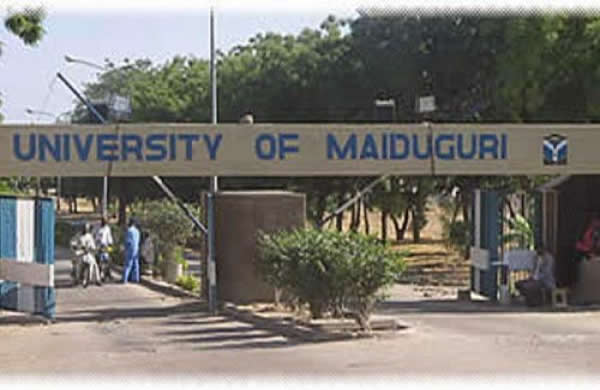The Federal Government’s recent decision to rename the University of Maiduguri in honor of former President Muhammadu Buhari has triggered a nationwide wave of controversy. The announcement, made by President Bola Ahmed Tinubu during a Federal Executive Council (FEC) meeting on July 17, has divided Nigerians — especially students, alumni, and education stakeholders — along lines of ideology, memory, and merit.
While the presidency described the move as a tribute to Buhari’s contributions to national security, unity, and governance, critics argue that his legacy in the education sector falls far short of deserving such recognition, especially from an institution that has weathered so many national storms.

Education Advocates Question the Choice
Opponents of the renaming have been vocal and sharp in their criticism, pointing to Buhari’s checkered record in handling the nation’s education system during his two terms in office.
According to investigations by The ICIR, Buhari presided over some of the most disruptive industrial actions in the history of Nigeria’s university system. In 2020, public universities shut down for nine consecutive months following a strike by the Academic Staff Union of Universities (ASUU). Another eight-month closure followed in 2022 — a grim pattern that, to many, symbolizes systemic neglect.
In total, ASUU embarked on strike actions lasting approximately 669 days under Buhari’s administration between 2015 and 2023 — the highest under any democratic leader since Nigeria’s return to civilian rule in 1999.
Beyond the strikes, critics argue that Buhari’s administration failed to engage meaningfully with ASUU or implement substantial education reforms. Several agreements remained unmet, leaving both lecturers and students in prolonged uncertainty and hardship.
Budget Cuts and Missed Priorities
Further deepening public frustration are findings that federal budget allocations to education consistently fell short of global recommendations. While UNESCO advises that countries dedicate 15–20% of their national budget to education, Buhari’s administration never came close. The allocation dipped from 7.93% in 2016 to 4.95% in 2023, underscoring what many see as a chronic underinvestment in Nigeria’s future.
“This was a presidency that repeatedly sidelined education,” said one university staffer. “To name a major institution after him sends the wrong message entirely.”
Renaming Controversies: A Recurring Nigerian Dilemma
This is not Nigeria’s first brush with naming controversies.
In 2012, then-President Goodluck Jonathan tried to rename the University of Lagos (UNILAG) in honor of MKO Abiola, a move that was reversed after mass protests and public uproar. Ironically, President Tinubu — then one of the fiercest critics of that decision — now faces accusations of hypocrisy for initiating a similar act.
Earlier this year, Tinubu also renamed the University of Abuja after former military Head of State General Yakubu Gowon — another move that sparked protests among students and alumni who felt the change lacked proper consultation and relevance.
The trend extends to the state level as well. In Oyo State, Governor Seyi Makinde’s decision to rename the Polytechnic Ibadan after Omololu Olunloyo, a former governor, met significant resistance. In Ondo, after Rufus Giwa passed in 2003, then-Governor Olusegun Agagu renamed the state polytechnic in his honor — a decision that was deeply unpopular at the time but eventually stuck.
These episodes underscore a larger issue: renaming educational institutions in Nigeria is rarely welcomed and often feels imposed, lacking stakeholder input or cultural sensitivity.

Social Media Reacts: Rejection, Resentment, and Reflection
On social platforms, the backlash was swift and sharp. Many Nigerians see the renaming of UNIMAID as a purely political maneuver designed to appease certain northern constituencies or rebrand Buhari’s legacy post-tenure.
One user, @Ohijeme, criticized the move as an empty gesture, stating that Buhari “did not significantly contribute to the education sector, nor did he initiate any major renovation or reform projects.”
Another commentator speculated that the renaming was a strategic political offering: “It’s a desperate attempt to score points in the North. But people aren’t buying it.”
Others took offense at the geographical mismatch, questioning why a university in Borno State should bear the name of a leader from Katsina State. “If you must name something after him,” one user posted, “why not a federal project in his home state? Or a military facility — something more aligned with his actual legacy?”
Even alumni of the university expressed grief. “Renaming UNIMAID is not just unnecessary — it’s heartbreaking,” said Jude, a graduate of the institution. “We have deep pride in that name. It holds meaning. To change it without consultation is a violation of our collective identity.”

A Few Voices of Support
Not all responses were negative, however. Some commentators praised the government’s decision, pointing to Buhari’s efforts in reclaiming the North-East from Boko Haram, a region where many universities — including UNIMAID — had suffered disruptions due to insurgency.
“Before Buhari, education in Maiduguri was impossible,” said one supporter. “His government restored calm and reopened classrooms. That’s worth acknowledging.”
But even among those sympathetic to Buhari’s security efforts, there remains a hesitancy about using the name of a public university to immortalize a presidency that failed to leave a strong educational legacy.

Symbolism or Substance?
For critics, this controversy reveals a troubling pattern: Nigeria’s political elite often use universities as symbolic tools, forgetting that these institutions carry emotional and intellectual weight for the communities they serve.
Whether this renaming stands or is eventually reversed, the backlash has reignited deeper questions about legacy, respect, and the role of education in nation-building.
At its core, the issue isn’t just about a name change. It’s about what — and who — the nation chooses to remember, and whether those choices align with the values Nigerians are trying to build for the future.





